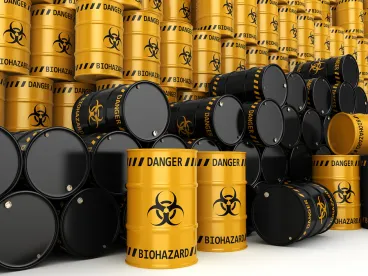Armed with one of the country’s strongest state chemicals laws, the state of Washington is solidifying its status as a global player in product regulation. We discuss the latest developments below.
Key Takeaways
-
What is happening? The Washington State Department of Ecology (Ecology) has completed Cycle 1 of its Safer Products for Washington program and signaled its direction for Cycle 2. To complete Cycle 1, Ecology finalized rules restricting the presence of certain chemicals in certain products and imposing reporting requirements for other chemical product combinations. Ecology also established a process by which companies may request an exemption from Safer Products for Washington requirements. Separately, Ecology published its Draft Report to the legislature identifying potential priority chemicals for Cycle 2 of the program. The report identifies seven new chemicals and classes of chemicals for potential regulation. Ecology is requesting comment on the Draft Report by July 14, 2023.
-
What is the background? The Safer Products for Washington program is a four-phase cycle that repeats every five years. During the first phase, Ecology identifies priority chemicals and classes it will focus on. For the second phase, Ecology identifies priority consumer products that contain the identified priority chemicals or classes. During the third phase, Ecology determines whether it will take regulatory action by requiring reporting or imposing chemical restrictions. Finally, during the fourth phase, Ecology adopts rules to implement the regulatory actions it identified in the previous phase. Each phase offers opportunities for public comment to Ecology.
Ecology Finalizes Cycle 1 Rule
On May 31, 2023, Ecology adopted a new rule that imposes reporting requirements and chemical restrictions for priority consumer products. This action marked the culmination of Cycle 1 of the Safer Products for Washington program. Under the rule, restrictions will be in place for the following:
-
Perfluoroalkyl and polyfluoroalkyl substances (PFAS) in aftermarket stain and water-resistance treatments, carpets and rugs, and leather and textile furnishings intended for indoor use.
-
Orthophthalates in fragrances in beauty and personal care products, and in vinyl flooring.
-
Organohalogen flame retardants in electric and electronic products with plastic external enclosures intended for indoor use, and other recreational products made from polyurethane foam (i.e., recreational covered flooring, recreational covered mats, outdoor recreational products, uncovered recreational products).
-
Alkylphenol ethoxylates in laundry detergent.
-
Bisphenols in drink cans and thermal paper.
The rule imposes reporting requirements for the following:
-
PFAS in leather and textile furnishings intended for outdoor use.
-
Organohalogen flame retardants in electric and electronic products with plastic external enclosures intended for outdoor use, and recreational covered wall padding made from polyurethane foam.
-
Bisphenols in food cans.
The rule also contains a mechanism allowing companies to request an exemption from any of the rule’s requirements. Among the factors Ecology must consider when evaluating a potential exemption are whether a chemical is functionally necessary in a product and the availability of alternatives, whether complying with the rule would cause a conflict with other law, and whether an unforeseen event or circumstance has limited the availability of alternatives. The material restrictions described above begin phasing in on January 1, 2025. Reporting parties must submit their first notice by January 31, 2025.
Ecology Announces Potential Cycle 2 Priority Chemicals
Ecology also published its Draft Identification of Priority Chemicals Report (Draft Report), initiating Cycle 2 of the Safer Products for Washington program. The Draft Report identifies seven priority chemicals or chemical classes for consideration:
-
Cadmium and cadmium compounds
-
Lead and lead compounds
-
Brominated and/or chlorinated substances
-
Benzene, ethyl benzene, toluene, and xylene substances
-
Formaldehyde and formaldehyde releasers
-
Cyclic volatile methylsiloxanes (cVMS)
-
6PPD
Ecology is requesting comment on the Draft Report by July 14, 2023. Ecology must publish its Final Identification of Priority Chemicals report by June 1, 2024. Ecology will follow the same four-phase process that it did for Cycle 1. Key deadlines for Cycle 2 include:
-
June 1, 2025: Identify priority consumer products that contain any new priority chemicals
-
June 1, 2027: Determine regulatory actions for the priority chemicals in priority consumer products
-
June 1, 2028: Adopt rules implementing the determinations identified.
Product manufacturers and other stakeholders should take advantage of the opportunities to engage with Ecology and to participate in the rulemaking process to help shape the content and build the administrative record.







 />i
/>i
